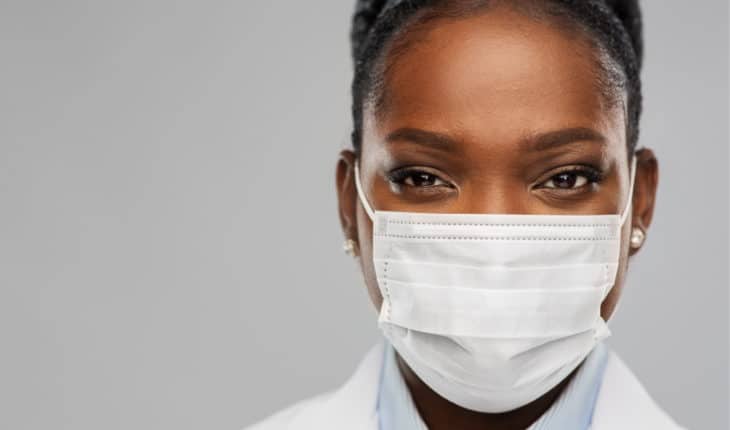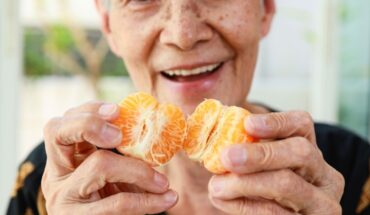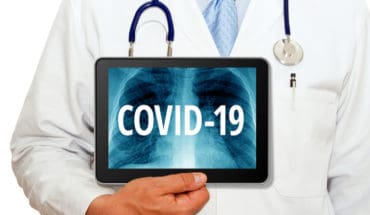Why wear a mask?
Coronavirus is spread by droplets that can spray into the air when those infected talk, cough and sneeze. These can enter the body through the eyes, nose and mouth, either directly or after touching a contaminated object. High quality medical masks create a barrier, preventing the spread of droplets and therefore infection.
Who should wear a mask?
The World Health Organization (WHO) has looked at the latest evidence, including whether the virus can project further than previously thought.
It was trying to re-examine whether the general public might benefit from wearing masks.
As there is an international shortage of these masks, experts decided that masks are now just for healthcare workers, rather than the general public.
Only two groups of people should wear protective masks, those who are:
- sick and showing symptoms
- caring for people suspected to have the coronavirus
In the UK, masks are not an everyday item for the general public because:
- other people’s coughs and sneezes can contaminate them and lead to additional infection when putting them on or removing them
- frequent hand-washing and social distancing are more effective
- they might offer a false sense of security
However, many other Countries have made the wearing of masks in public compulsory. The Czech republic, Austria, India, Slovakia, Bosnia-Herzegovina and some parts of Germany all made the wearing of masks compulsory. China, Hong Kong, South Korea, Japan, Thailand and Taiwan all actively encourage the wearing of masks and distribute them to families accordingly, they are also mandatory in Morocco.
Do homemade face masks work?
In the United States, it has been advised to use clean cloth or fabric to cover faces whilst in public. Officials say medical masks are in short supply and should be left for healthcare workers.
Only the sick, or those caring for patients of coronavirus, had previously been told to wear masks. But US officials hope the new rules could stop people without symptoms unknowingly spreading coronavirus.
However, reusable cloth masks are may increase the chance of infection, say European advisers.
They say there is a high chance of virus particles going through cloth. Problems with moisture could also mean the cloth retains the virus, they warn.
The UK is not advising most people to wear either medical or homemade masks. Health Secretary Matt Hancock says the government is following medical and scientific advice on their use.
England’s deputy chief medical officer Prof Jonathan Van Tam says he does not believe that healthy people wearing them in the UK would reduce the spread of the disease. “What matters now is social distancing,” he says.
Despite this, there is lots of advice on how to make face masks online, with some sites suggesting the best options.
However, officially-made ones have to meet safety requirements., unlike deregulated homemade ones.
Homemade masks may not be made of appropriate material to prevent the viral spread. They are also unlikely to fit the face sufficiently. Re-using such masks could increase the risk of infection as people repeatedly touch the central contaminated portion and then secure it to their face. Therefore wearing such a mask inappropriately and unhygienically could perversely increase the likelihood of being infected by Covid19.
What is the best type of mask?
In hospitals and industrial settings, different types of mask offer different grades of protection.
The most protective is an FFP3 or, alternatively, an N95 or an FFP2.
Experts do not recommend the public use these masks. They are for healthcare workers in close contact with coronavirus patients and at highest risk of encountering infected airborne droplets.
Other NHS staff in lower-risk situations can wear a surgical mask. The guidance states that these low-risk healthcare workers can safely operate within one metre of a patient with possible or confirmed Covid-19. The guidance includes staff working in hospitals, primary care, ambulance trusts, community care settings and care homes.
What else can protect against coronavirus?
NHS staff working in places where they could encounter coronavirus are those who should be wearing gloves and other protective wear, such as gowns, goggles and aprons.
Staff in the highest-risk scenarios are advised to wear fuller protection, including visors, rather than a simple apron, gloves, mask and goggles.
UK Government advice – no gloves or masks
The UK Government do not advise the general public to wear gloves or any other protective gear as it can lead to a false sense of security. Wearing such items inappropriately and failing to understand cross contamination can increase the risk of infection.
To protect yourself from coronavirus, the NHS recommends:
- Wash hands with soap and water often, for at least 20 seconds and immediately on returning home
- Use hand sanitiser gel if soap and water are not available
- Cover your mouth and nose with a tissue or your sleeve – not your hands – when you cough or sneeze
- Put used tissues in the bin immediately and wash your hands afterwards
- Do not touch your eyes, nose or mouth if your hands are not clean
Recent updates
As of 17th April, London Mayor Sadiq Khan has urged people to wear masks in public. He has called on the government to make them compulsory on transport in London during the coronavirus outbreak. Khan added that people should not buy surgical masks, but wear face coverings such as scarves, bandanas or reusable masks.
Khan said face masks should not be considered a substitute for physical distancing, but as a protective measure in instances where it was difficult to follow the guidelines – such as in shops or on public transport.
Anyone who is sick should wear a mask if they are outside for any reason. They should remain in their house, in isolation if they are ill.
Wearing a non-medical facial covering doesn’t necessarily limit your chances of catching the virus. Instead, what it does do, if you yourself are pre-symptomatic or asymptomatic, is reduce the chances of you giving the virus to somebody else.
The Government is going to revisit the evidence and research.
If you are going to wear a mask, it is of vital importance that you do this properly:
Photo: Syda Productions/Shutterstock.com
- What is a seizure? - 13th March 2025
- Febrile Convulsions and Seizures in Children - 13th March 2025
- Why women are less likely to receive CPR or survive cardiac arrest - 6th March 2025








